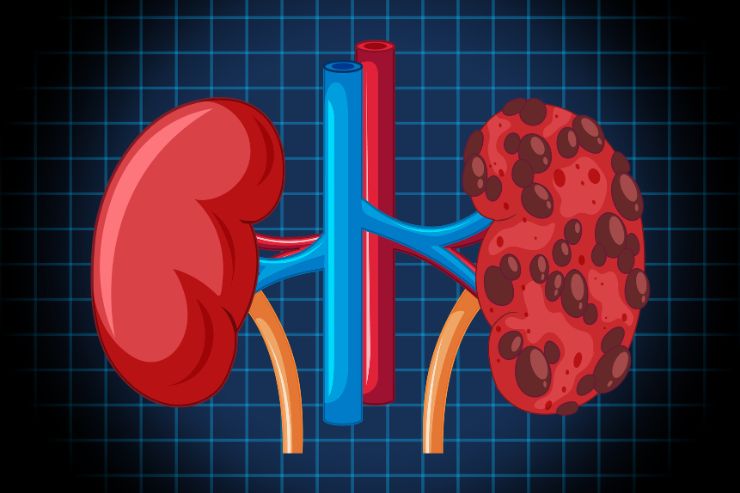
Renal Cell Carcinoma (RCC) is a form of kidney cancer that develops in the cells lining the kidney’s tubules, which play a critical role in filtering blood and producing urine. This cancer typically arises within the renal cortex and can grow into a solid mass or tumor. RCC often presents with symptoms such as blood in the urine (hematuria), pain in the side or lower back, a palpable mass in the abdomen, and general symptoms like fatigue and weight loss. Early detection through imaging tests like CT scans and MRIs, followed by appropriate treatment, is essential for improving outcomes and preserving kidney function.
Causes and Risk Factors:
Symptoms:
Diagnosis:
Types of RCC:
Treatment Options:
Prognosis:
Follow-up and Monitoring:
RCC management involves a multidisciplinary approach, including urologists, oncologists, and radiologists, to tailor treatment plans based on the individual’s health status and cancer stage.

Leading Renal Care: Expertise and Compassion at Dr. Virinder’s Kidney Clinic and Dialysis Centre. Dedicated to personalized kidney health solutions, ensuring comfort and confidence in every step of your journey to better renal wellness.